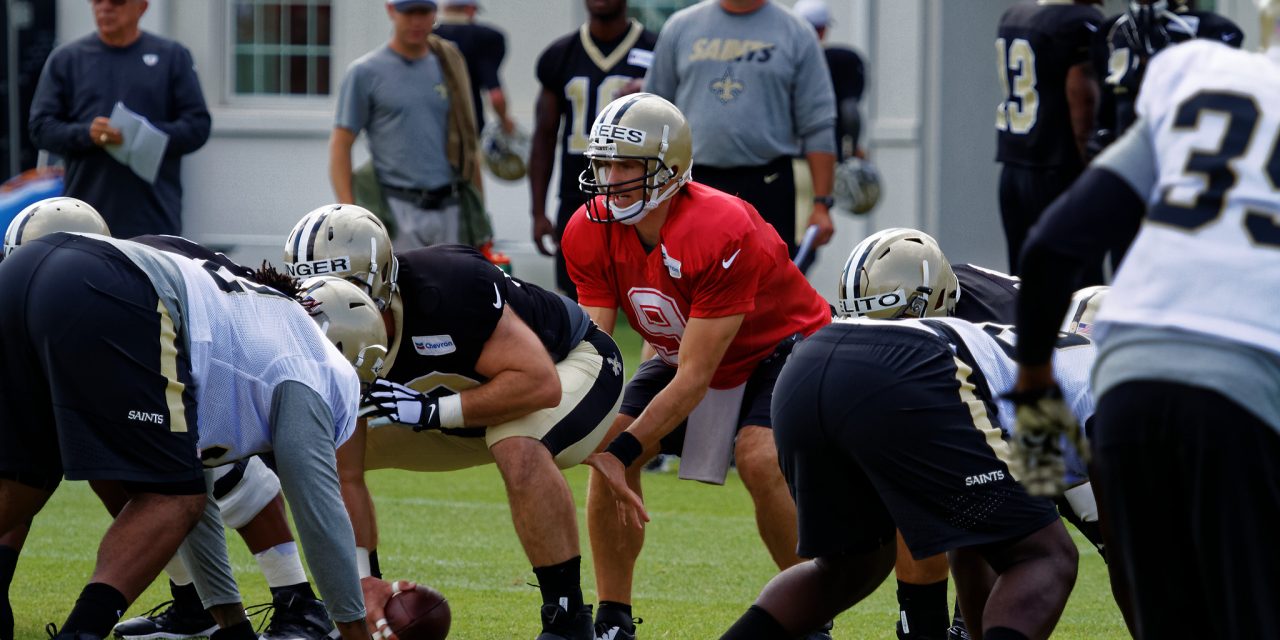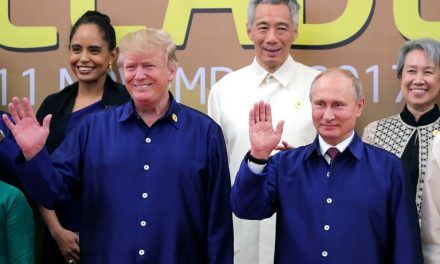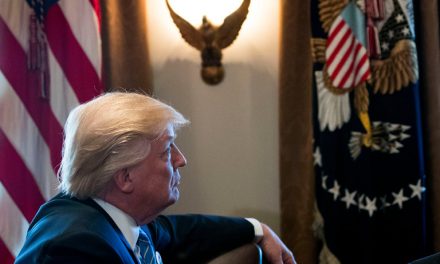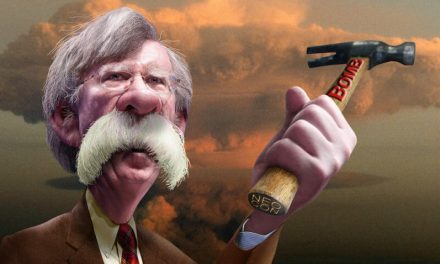Image Credits: Robert Stankiewicz/Flickr.
I guess I need to help Quin Hilyer out a bit, because he has the strange opinion that NFL quarterback Drew Brees did “nothing wrong” when he said that teammates who kneel during the national anthem are “disrespecting the flag of the United States of America or our country.”
“I will never agree with anybody disrespecting the flag of the United States of America or our country. Let me just tell you what I see, what I feel, when the national anthem is played and when I look at the flag of the United States. I envision my two grandfathers who fought for this country during World War II, one in the Army and one in the Marine Corps, both risking their lives to protect our country and to try to make our country and this world a better place. So every time I stand with my hand over my heart looking at that flag and singing the national anthem, that’s what I think about. And in many cases, it brings me to tears thinking about all that’s been sacrificed. Not just those in the military, but for that matter, those throughout the civil rights movements of the ’60s and all that has been endured by so many people up until this point. And is everything right with our country right now? No, it’s not. We still have a long way to go. But I think what you do by standing there and showing respect to the flag with your hand over your heart is it shows unity. It shows that we are all in this together, we can all do better, and that we are all part of the solution.”
The first indication that Brees made some kind of error came in the withering responses he received from his teammates, few of whom have ever knelt during the anthem. The second indication is that he quickly issued an apology.
When I read what Brees said, I didn’t think it was intended to be mean or disrespectful, and I thought he was honestly expressing why it upsets him when people don’t stand for the anthem. I understood the emotions he described when he talked about the military service of his grandfathers and all the sacrifices people have made, including in the Civil Rights Movement, to make this country better. What he said wasn’t disgraceful, but it relied on a flawed premise.
The premise is that kneeling during the anthem is a show of disrespect for the flag. Now, the Star-Spangled Banner is a flag, but it’s also a song. It’s distinct from the Pledge of Allegiance, which asks us to ally ourselves with the Stars and Stripes. The national anthem doesn’t have this requirement. It’s customary to stand during the anthem, but unless you’re an Olympic athlete, there’s usually no flag involved. I suppose Brees is accustomed to looking at a flag on the Jumbotron or something, but there’s simply no straight line connection between the anthem and the flag. It would make a kind of sense to say that kneelers are disrespecting the anthem, but not the flag.
This is also true of the military. The anthem has nothing directly to do with the military even though it’s a song about a battle. During the anthem, it’s natural to think of the people who have fought to protect this country, but a person could just as easily think about Abraham Lincoln or Louis Armstrong. Am I disrespecting Pops if I kneel during the anthem?
As for disrespecting the country, this is only true to the extent that you believe that criticism is the same as disrespect. The point of kneeling during the anthem is to call attention to something being wrong. For those who think it’s a solemn occasion where protest or dissent is inappropriate, that’s an honest opinion. A lot of people acknowledge that this sentiment is so widespread that it renders kneeling ineffective or even counterproductive as a tactic. But Brees wasn’t talking about the tactic. He was endorsing the view that kneeling disrespects the flag, the military, and the country.
For some, it’s not possible to separate these things, but intent is still important. If the intent is to call attention to police violence against black people, then the disrespect is at worst inadvertent. It’s certainly not the point.
Marques Colston explained the problem with the remarks quite well: “I saw something today from a former teammate that I couldn’t ignore. Drew, I had a ton of respect for you as a teammate on the field. But as a man, a black man, and a father your comments today cut deep. Not because you have an opinion or perspective – but because it continues to be so dismissive and insensitive to others.”
Now, there’s a certain risk here that people are being dismissive and insensitive to the feelings of Drew Brees and people who think like him. Communication should be a two-way street. It’s important for people to understand that for some, any distraction or disruption of the national anthem is deeply hurtful and that this pain has no necessarily malign component. Where Brees failed is his inability to provide this courtesy to the other side.
Hillyer makes the same mistake:
Nowhere did [Brees] denounce the kneelers. He said he didn’t agree with them, explained why, hailed the civil rights movement, and urged unity. That’s not an affront; it’s an opinion framed in constructive terms, whether or not one agrees with it.
For the majority of people that long have expressed disagreement with the kneelers, the point has been not to object to Kaepernick’s cause, but to his chosen means of expressing it. That’s what Brees did here, but in positive terms of his own, not in condemnation of others.
For this to be accurate, we’d have to agree that disrespecting the flag, the country, and the military service of our veterans is not viewed negatively by most people. You can call Brees’s comments a soft condemnation if you like, but you can’t say they were no condemnation at all.
Brees was asked if he’d be okay if NFL players resume kneeling during the anthem when the season begins in the fall, and he said ‘no.’ And his reason was not that it was a poor tactic or an inappropriate tactic. He affirmed all the criticisms that have been made on so-called patriotic grounds, as if the kneelers are disloyal or traitorous.
There’s a reason Brees apologized, and it’s because he realized that what he said was disrespectful.







